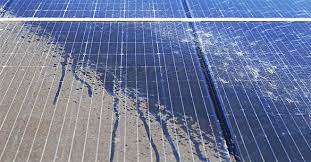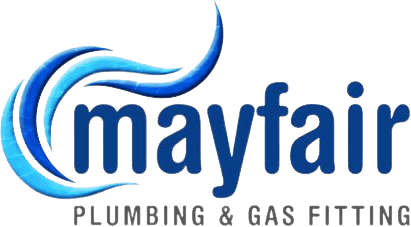As we aim for sustainable living, solar hot water systems have gained popularity. Still, they come with challenges.
This article examines the common problems these systems face, such as collector efficiency issues and mechanical problems with pumps and controls.
We’ll look at practical solutions to prevent freezing, overheating, corrosion, and scaling, highlighting the importance of regular maintenance and accurate sensors.
We aim to guide you through these problems with technical know-how, ensuring your solar hot water system works at its best.
Points Of Note
- The effective functioning of solar hot water systems depends on addressing a range of technical challenges. These challenges include collector efficiency and the reliability of mechanical components.
- Proactive measures are key in tackling these challenges. Regular maintenance is important to ensure that the system operates efficiently. Checking the accuracy of sensors is another step in maintaining the system’s performance. Updating the system with the latest technology can also improve its functioning.
- Proper insulation is important in ensuring that the system retains heat effectively. Well-functioning pressure relief valves are also important in preventing any damage to the system. Accurate controls play a significant role in regulating the temperature and ensuring that the system operates efficiently.
- Addressing these technical challenges and implementing the necessary measures can greatly improve the resilience, performance, and lifespan of solar hot water systems, making them a sustainable and dependable choice for residential hot water needs.
The below video is an interesting take on the question – Why don’t we all use solar hot water systems?
Collector Efficiency Issues
Collector efficiency in solar hot water systems can suffer due to obstructions like dust, debris, and bird droppings that block sunlight, diminishing the system’s heating capabilities. To address these challenges, consistent cleaning and maintenance of the solar collector surface are imperative.
Using temperature sensors can help monitor performance dips that may result from such obstructions. It’s important to ensure the heat transfer fluid within the system flows optimally, which can be done by regular inspections for any circulation constraints.
Adopting these measures can help solar water heating systems maintain high efficiency, leading to a reliable hot water supply and energy cost savings. Active maintenance not only keeps collector performance up but can also prolong the system’s overall lifespan.
Freezing and Overheating Risks
A solar hot water system can face operational challenges due to extreme temperatures, with freezing in cold climates and overheating during periods of high solar radiation being key concerns.
To combat the risk of freezing, a special antifreeze heat transfer fluid is often used. This liquid moves through the system and stops the water inside the pipes from turning to ice, which could lead to significant damage.
Conversely, to manage overheating, temperature relief valves and heat exchangers are utilized to safely disperse excess heat. These components help maintain the system’s temperature, contributing to its efficiency and durability.
With these protective measures, solar hot water systems can function effectively in various weather conditions.
Corrosion and Scaling Challenges
In solar hot water systems, corrosion, and scaling are significant hurdles that can affect the longevity and efficiency of the system components. The buildup of minerals and the chemical interactions between different materials can cause:
- Degradation of the Storage Tank: Corrosive substances may wear down the internal lining of the tank, sometimes requiring early replacement.
- Impaired Heat Transfer System: Scaling can act as insulation on heat transfer surfaces, hindering the system’s ability to heat water effectively.
- Galvanic Corrosion Risks: The presence of dissimilar metals within the system can lead to electrical potential differences that speed up corrosion.
To address these challenges, regular upkeep, including water treatment and the application of corrosion inhibitors, is vital. Choosing materials resistant to corrosion or employing sacrificial anodes can also substantially increase the longevity of a solar hot water system.
Pump and Circulation Problems
The performance of a solar hot water system can be affected by problems with the pump and circulation mechanisms, which are necessary for maintaining consistent water flow and temperature. Troubleshooting solar hot water systems often uncovers that failures of the circulation pump are a frequent source of pump and circulation issues. These can include electrical problems to mechanical faults. Also, fluid leaks within the solar water heating system can cause a decrease in pressure, leading to insufficient fluid movement and heat transfer.
| Problem | Cause | Solution |
|---|---|---|
| Inadequate flow | Faulty circulation pump | Replace or repair the pump |
| Uneven heating | Airlocks | Bleed the system to remove air |
| System overheating | Incorrect flow rate | Adjust flow rate or check sensors |
| Fluid leaks | Damaged seals/pipes | Identify and seal leaks |
Promptly addressing these issues helps ensure the longevity and best performance of your solar hot water system.
Control and Sensor Failures
Ensuring a solar hot water system’s longevity and performance requires careful attention to control and sensor components. Failures in these areas can lead to inaccurate temperature readings and inefficient heating.
- Regular Diagnostics: Conduct periodic checks on the control systems to detect early signs of malfunction. Make sure that temperature sensors are providing accurate readings to maintain the optimal function of the solar water heating process.
- System Component Synchronization: Sync control system operations with the circulating pump and other heating system elements. This prevents overheating or underheating due to communication delays or sensor errors.
- Proactive Replacements: Swap out faulty sensors and outdated control systems before they impact the effectiveness of the solar hot water system. This ensures continuous, reliable operation and extends the lifespan of your system components.
Insufficient Hot Water Supply
One common problem homeowners face with solar hot water systems is not having enough hot water to meet their daily requirements. This issue often occurs when the system’s capacity does not match the home’s hot water demand, or when the heating elements are not working efficiently.
To tackle the problem of insufficient hot water supply, evaluating the system’s size and energy consumption against how much water the household uses can be helpful. Upgrading to more effective thermal collectors or adding to the storage capacity might lead to a steadier supply of hot water. Regular upkeep to prevent scaling and corrosion is important to maintain optimal heat transfer.
If the system includes electrical backup heating elements, checking that they work properly is important for ensuring a dependable hot water supply during times when solar irradiance is low.
Pest Infestation Concerns
Addressing pest infestations is imperative for maintaining the integrity and performance of solar hot water systems, as these can lead to reduced efficiency and possible damage. Rodents and birds can create nests under solar panels, chew on wiring, and block critical components like pressure relief valves. Insects may fill drainage paths meant to protect storage tanks and other elements from water damage. Proactive measures and timely interventions are necessary.
- Regular Inspections: Perform comprehensive checks for signs of nests or damage, particularly near solar panels and connections to storage tanks.
- Protective Measures: Install barriers and screens to prevent pests from accessing vulnerable areas of the solar hot water system.
- Maintenance Routines: Ensure systems are designed for automatic draining and that pressure relief valves are functional to avert conditions that might attract pests.
Noisy System Components
Often, homeowners mention that their solar hot water systems emit sounds that become bothersome and signal maintenance needs. Noise from a system can stem from a range of causes, such as sediment accumulation, changes in internal pressure, or electrical component malfunctions. Promptly addressing these concerns is integral for maintaining the long-term functionality and effectiveness of solar water heaters.
| Cause of Noise | Issue at Hand | Remedy |
|---|---|---|
| Sediment Buildup | Obstruction in pipes | Clean system |
| Internal Pressure | Valve failure | Inspect/replace valves |
| Faulty Pump | Deterioration | Fix or exchange pump |
| Heating Fluid | Incorrect rate of flow | Modify system settings |
| Electrical Components | Unsecured wiring | Tighten connections |
Technical knowledge should lead the problem-solving process, utilizing a hands-on, results-driven approach to restoring quietness and operational capability to the system.
Solar Hot Water Troubleshooting
Troubleshooting a solar hot water system demands a systematic approach to identify and fix the source of any noises and to keep the system running effectively. Here are steps to address common problems:
- Inspect Solar Panels and Collectors: Examine solar panels for any physical harm that might affect their performance. Look for any cracks, discoloration, or objects that could block sunlight.
- Examine Insulated Storage Tanks: Check that tanks have proper insulation to keep heat. Make sure the water temperature settings are accurate and the heating element is working correctly.
- Assess Circulation Systems: Make sure that pumps and valves are working correctly. Listen for any odd sounds that could suggest air in the system or a malfunctioning pump.
Preventive Maintenance Tips
Regular preventive maintenance is key to ensuring the longevity and efficiency of your solar hot water system. To maintain optimal performance, it’s important to clean the solar collectors regularly, removing any debris or residue that could obstruct sunlight. For thermal solar collectors, check for signs of wear or leaks and confirm they are properly insulated.
Periodically inspect the water tank for signs of corrosion or scaling, which could compromise the system’s integrity. Prevent freezing and overheating by checking that the antifreeze levels and mixture are correct and that temperature controls are working properly. Also, make sure the circulation pump is functioning well to maintain consistent water flow.
Adhering to these preventive maintenance steps can significantly reduce the chance of system failures and expensive repairs.
Collector Surface Cleaning
How often should the surface of solar collectors be cleaned to ensure maximum efficiency and prevent common operational problems? The maintenance frequency for solar hot water panels is important for preserving their energy absorption capabilities and securing the harnessing of maximum solar energy.
Here is a brief guide:
- Biannual Cleaning: Typically, solar thermal collector surfaces should be cleaned at least twice a year. More frequent cleaning may be required in areas with high levels of dust or after significant weather events.
- Inspection During Cleaning: Use the cleaning sessions as a chance to check for any damage or wear that could impact performance.
- Professional versus DIY: While some owners may prefer professional collector surface cleaning services, others might decide to clean the collectors themselves using non-abrasive materials and gentle detergents to avoid scratching the surface.

Temperature Regulation Difficulties
Managing temperature regulation effectively remains a significant challenge for solar hot water systems, often leading to inconsistent water temperatures for end-users. These difficulties can result in the delivery of lukewarm or cold water when a constant supply of hot water is expected.
To mitigate such problems, it is vital to ensure that the solar water heater is equipped with an adequately calibrated and functioning control system. This involves precise sensors and reliable electronic controllers that work together to monitor and adjust the water temperature.
The system should also be designed to handle the varying intensity of sunlight throughout the day and seasonal changes. Implementing a backup energy source can also help maintain a consistent water temperature during periods of low solar availability.
Regular maintenance of these components is necessary for sustained operation and temperature consistency.
Overheating Prevention Strategies
Why is it important for solar hot water systems to include strategies that prevent overheating, and what actions can be taken to avoid damage from excessive temperatures?
Overheating not only reduces the efficiency of a solar hot water heater but can also lead to significant damage, diminishing both the lifespan and safety of the system. Advanced systems employ several strategies to prevent the system from getting too hot, ensuring that the hot water system stays operational even when there is sufficient solar energy to cause overheating.
Here are three key measures:
- Installation of temperature sensors and thermostatic controls to actively monitor and adjust heat levels.
- Utilization of heat dump systems which release excess heat through various means, such as radiators or heat exchangers.
- Implementation of automatic control systems that introduce cooler water into the system when temperatures exceed set thresholds.
Freezing Protection Techniques
Just as overheating can harm solar hot water systems, freezing conditions pose a significant risk, however they are not as common in Australia, necessitating effective protection techniques to keep the system’s fluid from solidifying and causing damage.
To keep solar efficiency high in colder climates, hydronic solar water heaters often use a mix of water and non-toxic antifreeze in the collector loop. This glycol-based solution is capable of enduring low temperatures without freezing.
Active strategies also include automated drain-back systems that evacuate the collector of water when temperatures near freezing, ensuring that only cold water remains in the collectors, which is less prone to damage.
Implementing these methods is key to maintaining the integrity and functionality of solar water heaters in areas susceptible to frost.
Scaling and Blockage Prevention
To keep solar hot water systems from scaling and blockage, regular inspections and cleaning of mineral deposits that can build up in pipes and collectors are necessary. These issues can significantly reduce the effectiveness of solar heaters and their capacity to heat water properly. Establishing a consistent maintenance routine is important for the system’s durability and function.
Here are three practical steps for preventing scaling and blockage:
- Water Softening: Installing a water softener can lower the mineral content before it reaches the solar hot water heater, which can reduce the chance of scale formation.
- Regular Flushing: Clean the system periodically to clear any accumulated sediment within the solar panel collectors and pipes.
- Chemical Treatment: Apply safe, scale-preventive products that are specially made for solar hot water systems to help stop mineral deposits from developing.
Circulation Pump Maintenance
Proper maintenance of the circulation pump is necessary for preventing disruptions in the solar hot water system’s fluid movement and ensuring long-term efficiency.
The circulation pump, an integral component, moves heat transfer fluid between the solar collectors and the hot water tank.
Regular maintenance of the circulation pump in an existing system involves visual checks for leaks or damage, confirming pump operation, and listening for unusual noises that could suggest wear or obstruction.
Making sure the pump’s electrical connections are secure and the moving parts are well lubricated can prevent failure.
Technicians should also inspect for debris or sediment that may hinder flow and affect the efficiency of solar power utilization.
Such proactive steps can maintain the performance and longevity of the solar hot water infrastructure.
Tank Insulation Importance
Tank insulation plays a key role in maintaining water temperature and reducing heat loss in a solar hot water system. It may not always be seen as a primary aspect, but it is essential, especially during times without sunlight. Effective insulation ensures that the hot water produced by solar panels stays hot until it is needed for a hot shower or other household needs.
Here are important considerations regarding tank insulation:
- Thermal Retention: Adequate tank insulation helps minimize energy loss, keeping water hot through the night or on overcast days.
- Cost Efficiency: Insulation decreases the dependence on auxiliary heating, which can lead to savings on the electricity costs associated with your water heater.
- System Longevity: Tanks with good insulation face fewer shifts in temperature, which may decrease strain on system components and prolong the operational life of your solar hot water system.
Sensor Accuracy Checks
Regularly ensuring the accuracy of temperature sensors is imperative for the optimal functioning of solar hot water systems, as these devices are key in regulating water temperature and system efficiency. Inaccurate sensors can result in overheating or underheating, compromising not only user comfort but also the integrity of the entire system. Flat plate panels, which constitute the solar panel array, depend on these sensors to effectively harness solar energy.
| Sensor Issue | Solution Approach |
|---|---|
| Inaccurate Readings | Calibration or replacement of faulty sensors |
| Slow Response Time | Inspect wiring and connections for problems |
| Complete Sensor Failure | Systematic troubleshooting or professional evaluation |
Regular checks ensure that every part of the solar hot water system, including sensors, works in harmony and operates at peak performance.
Pressure Relief Valve Functions
Every solar hot water system includes a pressure relief valve, which acts as an important safety feature to prevent too much pressure build-up that could cause harm to the system or lead to its malfunction. Keeping the pressure relief valve in good working order is vital for the system’s integrity and safety. Here are its key functions:
- Pressure Regulation: Automatically allows water to escape if the pressure goes beyond what is considered safe, helping to guard against ruptures or damage.
- Temperature Control: Works together with temperature controls to stop the water from getting too hot, which can also result in too much pressure.
- System Longevity: Helps to maintain the system’s durability over time by easing the strain on tanks and piping, decreasing the chances of leaks or early deterioration.
It’s important to regularly check and maintain the pressure relief valve to keep it working well and to maintain safety.
System Upgrade Considerations
Moving beyond the basic upkeep of parts such as the pressure relief valve, opting for a system upgrade can be a proactive measure to boost the performance and extend the life of your solar hot water system.
When considering upgrades, examine the efficiency of current collectors; newer models might offer superior heat absorption and less heat loss.
In areas susceptible to freezing or overheating, systems with advanced temperature control mechanisms can avert damage.
For those dealing with corrosion or scaling, contemporary materials with enhanced resistance can significantly better system longevity.
Upgrading pumps and controls can rectify circulation problems and sensor errors, ensuring the system operates at its best.
Always check that new components are compatible with existing ones to preserve seamless operation and dependability.
Frequently Asked Questions
How Can I Integrate a Solar Hot Water System With My Existing Home Automation for Optimized Performance?
To enhance the efficiency of your solar hot water system, incorporate it with your home automation using intelligent controllers. These devices can modify heating plans based on habitual use and weather predictions to ensure maximum efficiency.
What Are the Environmental Impacts of Disposing of Old Solar Hot Water System Components?
Disposing of old solar hot water system components can lead to environmental contamination if not managed correctly, as antifreeze solutions may contain hazardous chemicals and heavy metals might leach from deteriorating tanks and collectors.
Can a Solar Hot Water System Be Used in Conjunction With Rainwater Harvesting, and if So, What Are the Considerations?
Yes, you can integrate a solar hot water system with rainwater harvesting. Considerations should include ensuring that the water is adequately treated for quality, sizing the system to meet your needs, maintaining thermal efficiency, and making sure the components of the rainwater collection work well with the solar heating elements.
How Does the Hardness of the Water Supply Affect the Longevity and Efficiency of a Solar Hot Water System?
Hard water can lead to scaling and mineral deposits within solar hot water systems. This buildup can decrease the system’s efficiency and ability to transfer heat, potentially shortening its operational life and requiring increased maintenance.
Are There Any Specific Landscaping Considerations to Enhance the Performance of Ground-Mounted Solar Hot Water Collectors?
To enhance the performance of ground-mounted solar hot water collectors, it’s beneficial to plan your landscaping in a way that prevents shading and ensures maximum exposure to sunlight. This includes maintaining a clear path for sunlight to reach the collectors throughout the year. Keeping trees and bushes trimmed regularly is advisable to maintain optimal sun exposure.
Final Points
The effective functioning of solar hot water systems depends on addressing a variety of technical challenges. These challenges include collector efficiency and the reliability of mechanical components.
Taking proactive steps is key in tackling these challenges. Regular upkeep is important to ensure that the system is running smoothly. Verifying the accuracy of sensors is another important step in maintaining the system’s efficiency. Additionally, updating the system with the latest technology can also help improve its performance.
Proper insulation is crucial in ensuring that the system retains heat effectively. Well-functioning pressure relief valves are also important in preventing any damage to the system. Accurate controls play a significant role in regulating the temperature and ensuring that the system operates efficiently.
By addressing these technical challenges and implementing the necessary measures, solar hot water systems can greatly improve their resilience, performance, and lifespan. This makes solar hot water a sustainable and dependable choice for residential hot water needs.





